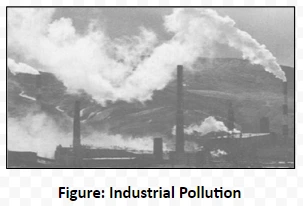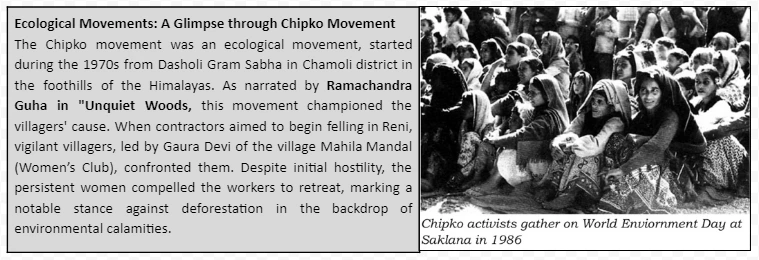![]() December 14, 2023
December 14, 2023
![]() 382
382
![]() 0
0
Ecology and society form the interconnected web of physical and biological systems. It is significantly influenced by human activities over time. Human interventions have transformed ecological facets from altering natural phenomena like aridity or flood-proneness through deforestation to global warming due to climate change.
This transformation extends to creating human-made environments like agricultural farms and urban landscapes.
The Industrial Revolution in Britain had global ecological impacts, as it led to the expansion of cotton plantations in southern North America and the Caribbean, resulting in forced West African slave labor and depopulation. In Britain, coal-burning mills polluted the air, while rural-to-urban migration caused overcrowded, unsanitary living conditions. The ecological footprint of the cotton industry was evident in both urban and rural areas.

In the modern information age, global social movements unite through vast networks, involving NGOs, religious groups, human rights advocates, and more. Examples like the Seattle protests against the World Trade Organisation illustrate the role of internet-based platforms in organizing such movements.

‘God forbid that India should ever take to industrialism in the manner of the West. The economic imperialism of a single tiny island kingdom (England) is today keeping the world in chains. If an entire nation of 300 million took to similar economic exploitation, it would strip the world bare like locusts.’
<div class="new-fform">
</div>

Latest Comments